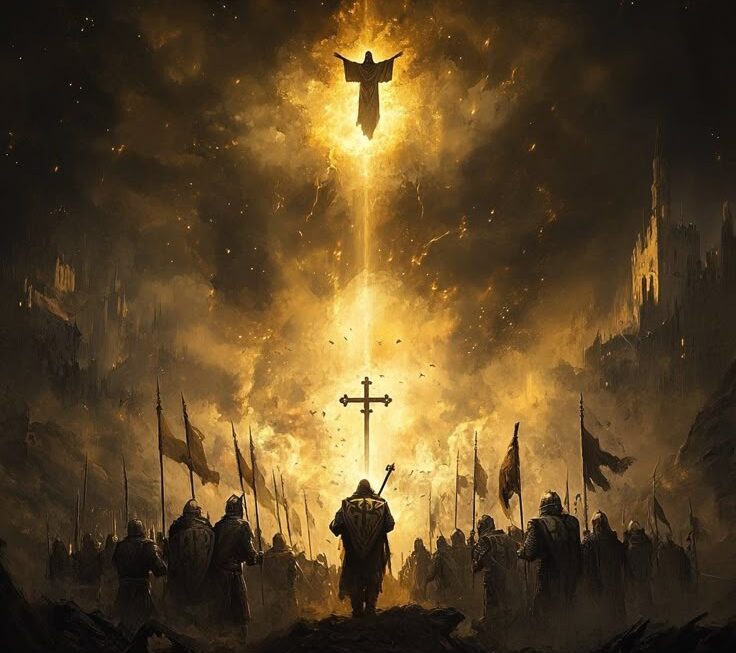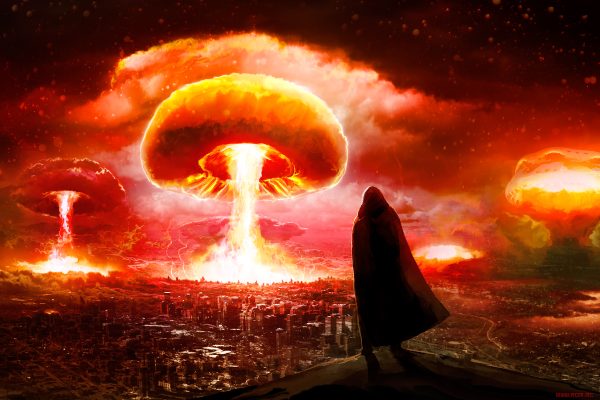The origin of medieval apocalyptism
In prior articles I elaborated that most of the end of the world doom prophecy had come from the West, that the Orthodox after an initial pan-Christian apocalyptic fervor, had by the 4th century settled on a conservative amillennial position. However, lately I have come to find that the post Nicene contribution to apocalyptic thought by the Orthodox is much more extensive then I initially thought. In fact medieval apocalyptic thought was defined by one Orthodox work, the so called Apocalypse of Pseudo-Methodius.
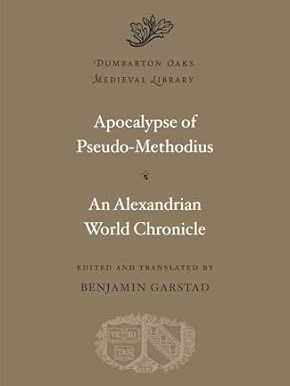
This work is self ascribed to Methodius of Olympus, a fourth century Church Father, but the scholarly consensus seem to unanimously agree that it was written in the late seventh century by an anonymous ecclesiastical figure, in response to the Arab conquest of the Middle East. The original was composed in Syriac, in Mesopotamia. It was quickly translated into Greek, and then into Latin, Armenian, Coptic, Arabic, Slavonic, eventually into many vernaculars. It was the most influential apocalyptic work of the middle ages, one that defined apocalyptic expectations until the arrival of the modern era.
Its main contribution to eschatology was the introduction of the concept of the “restrainer” in the face of the Roman emperor and generally the Roman emperor as the earthly redeemer of the world, the main opponent of the Antichrist. By extension it introduced the concept of the necessity of “resisting the apocalypse.”
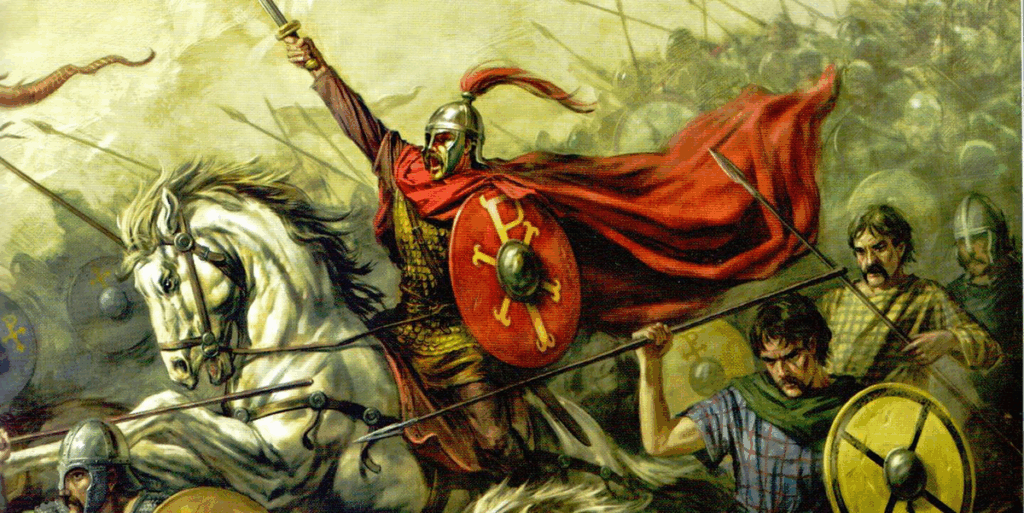
The language is relatively optimistic, in showing great hope in the redeeming capabilities of the then still existing Roman empire, which is acknowledged as Constantinople, rather than Rome itself, which was at the time ruled from the former. It was written when Christendom was going through one of its biggest trials, the whole middle east had been overtaken by the Muslims and three out its five patriarchates, Alexandria, Antioch and Jerusalem, had been lost, not to mention the seat of the Church of the East in Seleucia-Ctesiphon, Persia. The “sons of Ismael” were clearly seen as agents of the Antichrist by Christian contemporaries an the author reflected the general thought of the time, that the signs of the end were clear and at hand.
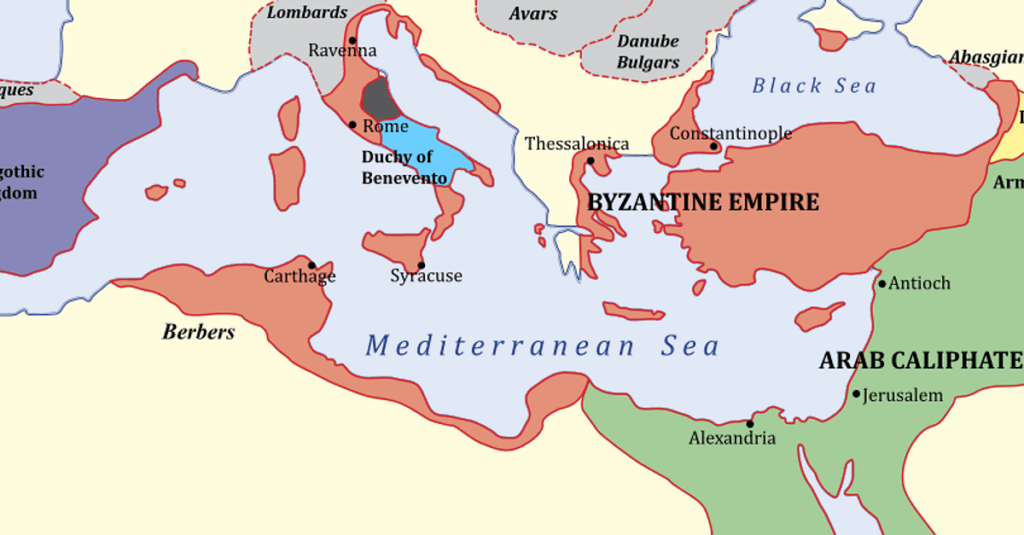
It mentions the Chiliastic view of the fulfillment of all things at the turn of the seventh millennium. The Orthodox Septuagint recons the beginning of the world at around 5500 BC, which would make the beginning of the 7th millennium around 500 AD. The 600s was already off, but not by much, hence the widespread belief that the Muslim invasions was the great tribulation and the beginning of The End.
In the midst of this trials, come the optimistic prophesies of Pseudo- Methodius, some of which are cited below. Inserted words in non-italic parenthesis or usage of bold or colors for emphasis, are mine. The paragraphs in orange declare the time frame when the event would happen and the paragraphs in blue provide the general eschatological context.
The Latin version’s introduction of Peter the Monk starts by stating:
“…what was prophesied (by blessed Methodius) is more relevant to our own times (he wrote in early 8th century), “upon whom the ends of the world” as the Apostle Paul says, “are come.”
–pp 77–
Peter uses saeculorum or age in Latin, however the English translator translated it as world.
And the text itself:
And there will not be a nation or a kingdom under heaven which will be able to overcome them (the Ishmaelites) until the completion of the seven weeks of years (70 years). And after these things they will be defeated by the kingdom of heaven and of the Romans and subjected to it. For this kingdom, that is of the Romans, will be exalted over all the kingdoms of the nations and it will by no means be destroyed by any of them unto eternity. For they have an invincible weapon, through which all of its enemies will be defeated.
–Ch 6 p93 Latin–
As per Pseudo-Methodius, the Ishmaelites will rule for 70 years after which the Romans will defeat them.
About the Romans:
So let us listen to what the divinely eloquent Paul foretold concerning the last day and the kingdom of the Romans. For he said in the second letter to the Thessalonians:
Then the author proceeds to quote from 2nd Thessalonians describing how first there must be a falling away (discessio, apostasia) and then the man of lawlessness would be revealed. The quoting ends with:
…and after a few words, “only he who now letteth (restrains, holds back) will let, until he be taken out of the midst, and then shall that wicked be revealed. (2 The 2:7)”
Who then is the one “out of the midst,” if not the empire of the Romans? For all rule ad authority of this world will be ruined apart from her.
The above passage that conveys the idea of the Roman king being the restrainer of the Antichrist and the last kingdom to survive until The End. What follows is confirmation of it.
For it is also besieged and will not be overcome, and all the nations that dash themselves against it are grind up and spent by it, And it will prevail until the last hour will arrive and she “shall stretch her hands unto God” and as the Apostle says, “when all rule and all authority” will be ruined and the Son himself “shall have delivered the kingdom to God, even the Father (1 Cor 15:24 an allusion to the end).” What manner of kingdom? Quite clearly that of the Christians.
For when will there ever be or has there been or is there a kingdom or another power that could surpass it?…
Then the author proceeds to provide examples of the past greatness of Israel followed by more proof of the destined greatness of Rome:
“…consider all the strength of the Hebrews, and how it was wiped out and ground down under the empire of the Romans. Titus and Vespasian then cut them all down. Did not Hadrian reduce the temple and plow it under with a plow? So what other kingdom has arisen or will arise after it? We shall surely find none at all, if we take care if truth.
–Ch10 pp 10-11 Latin–
Pseudo-Methodius goes back again in more detail to the beginning of the End Times:
And so after the kingdom of the Persians is swallowed up, in their place against the empire of the Romans will rise up the sons of Ishmael, the sons of Hagar, whom the scripture mentions, calling them “the arm of the south,” and Daniel predicts this too. And they will oppose the kingdom of the Romans in the number of the circling times, in the seventh time of years, that is in the seventh millennium of the world, because the end of the age has come and there will be no more length of time.
–Ch 10 pp109 Latin
The start of the Muslim expansion is equated with the start of end times during the seventh millennium.
For in the last millennium, or the seventh which will then be under way, in that time the kingdom of the Persians will be uprooted. And in that seventh millennium the seed of Ishmael will begin to come out of the desert of Yathrib (Medina)and when they come out they will be gathered together in one accord at Gabaoth the Great.
–Ch 11 pp111 Latin–
Once more, the start of the Muslim expansion is equated with the start of the end times in the seventh millennium.
And that time, therefore, at Gabaoth all the lords of the Greeks, that is of the Romans, will fall at the mouth of the sword…by the hand of the seed of Ishmael...
–Ch 11 pp 39, Greek–
It is evident that for Methodius, the above was being fulfilled in the seventh century and that is how the contemporaries, including Peter, interpreted it.
Then all of a sudden affliction and trouble will come to them (the Ishmaelites), and the king of the Greeks, that is of the Romans, will go out to them with great anger and he will be aroused like a man roused from sleep after drinking much wine, whom men have reckoned to be dead and good for nothing. This man will come out against them from the sea of Ethiopia and plunge a sword and desolation into Yathrib (Medina), which is their homeland, and he will take captive their women and children. The sons of the king will descend upon those who dwell in the Promised Land and with sword cut them off from the land...
…And all the wrath and the anger of the king of the Romans against those who denied our Lord Jesus Christ will be burned up and the land will be at peace. And there will be a great peace and quiet upon the earth such as has not been nor will be until the last day at the end of the ages.
And this is the peace of which the godly apostle declared that “when they shall say, Peace and safety; then sudden destruction falleth upon them (1 The 5:3 an allusion to the last day), and moreover the Lord speaks thus in the gospels: “For as in the days of Noah there were men eating and drinking, marrying and giving in marriage, so it will be at the last day. (Mat 24:27-39) .
–Ch13 pp 60-61 Greek–
The Roman victory over Ishmael, will be the last moment of lasting peace on earth, because after it Gog and Magog will be released:
Then the gates of the North will be opened up and out will come the powers of the nations which were enclosed within, and the whole earth will reel from their face, and men will cry aloud and flee and hide themselves…
For the nations coming from the North eat the flesh of men and drink the blood of beasts like water ad eat unclean things:…,dead bodies and aborted fetuses of women… And they will corrupt the earth and befoul it and deface it,…
So after a week of years (7 years), when they seize the city of Joppa, the Lord God will send out one of the chief commanders of his army and he will smite them in a single moment of time. And after these things the king of the Romans will come down and he will dwell in Jerusalem for a week and half of years, and upon the completion of ten and half years the son of perdition will appear.
–Ch14 pp 62-63 Greek–
The unclean nations above were to rule for only seven years. After defeating them, the king of Romans was to dwell in Jerusalem for 10.5 years.
And when the son of perdition will be revealed, the king of the Romans will go up to Golgotha, where the wood of the cross was fixed…And the king of the Romans will take his wreath and place it on the cross and spread out his hands to heaven and deliver the kingdom of the Christians to God, even the father. (1 Cor 15:24 an allusion to the end)
And the cross will be taken up to heaven…And the prophecy of David will be fulfilled which says at the end of days “Ethiopia (Cush in the Syriac) shall stretch out her hands unto God,” because from the seed of the sons of Chouseth, the daughter of Phol king of the Ethiopians, these men will in the end stretch out their hands unto God. (The prophesy about Ethiopia only means that the king of the Romans allegedly is of partial Ethiopians ancestry, what matters here is that this will happen at the end of days)
And as soon as the cross is lifted up to heaven, the king of the Romans will surrender his spirit; then all rule and authority will be abolished (1 Cor 15:24 and allusion to the end). And this is when the son of perdition will be revealed-this man from the tribe of Dan…
–-Ch 14 pp66-67 Greek–
The appearance of the son of perdition and the beginning of his reign, the abolition of all rule and authority, the deliverance of the kingdom to God, are to happen concurrently, at the end of time.
For this son of perdition will go to Jerusalem and sit in the temple of God, equal to God…
so when the tribulation of those days is increased (Mat 24:29 an allusion to the end) by the son of perdition, the Divinity…will at once send forth…Enoch and Elijah, for the refutation of the opposition (an allusion to the two witnesses of Revelation, which is an allusion to the end)…
Then will appear the sign of the Coming of the Son of man and he will arrive on the clouds of heaven with heavenly glory and “the Lord shall consume him with the spirit of his mouth, according to apostolic revelation.
–Ch 14 pp69 Greek–
Pseudo-Methodius doesn’t say how long is the reign of the antichrist supposed to last, but nothing indicates it will be centuries. In fact subsequent apocalyptic literature based on the Apocalypse narrows it down to a few years. Most importantly, scripture says that the last tribulation will be cut short by the Lord.
Peter the Monk ends his Latin translation with this afterword:
THIS ENDS THE DISCOURSE OF SAINT METHODIUS THE BISHOP CONCERNING THE END OF THE WORLD. THANKS BE TO GOD
–Ch 14 pp 139 Latin–
where WORLD is rendered as MUNDUS (PHYSICAL WORLD) rather than SAECULORUM (AGE), as in his foreword.
In Peter’s Latin introduction and conclusion, as well as the English translation of them, we can get a little glimpse of the evolution of the concept of Age/World. The original Greek always uses the word Aion (Age), so does the Latin translation of the text itself by using the word Saeculum(Age). However the modern English translation of the Latin introduction translates Saeculum as World. In the conclusion, Peter himself uses Mundus (world) rather than Saeculum (age).
In general, the “predicted” events to happen in the 7th millennium can be summarized as follows:
| Event | Chronological Time Frame | Used Eschatological Time Qualifiers |
| Persia is destroyed, the son of Ishmael invade, Romans defeated | Start of the 7th Millennium | End of the age. That (end of the age) time. |
| king of the Romans defeats the Ishmaelites | After 70 years | End of the Age |
| invasion of the Unclean Nations, defeated by the Romans | Start unspecified, defeated after 7 years | Last Day. Last Hour. |
| king of the Romans dwells in Jerusalem | For 10.5 years | Last Day at the End of the Age. Last Day. |
| the son of perdition appears | right after the 10.5 years | |
| the cross assumed into heaven, the king of the Romans dies, authority abolished | when SOP is revealed | Last Day. Last Hour. End of Days. |
| the son of perdition is revealed, many are deceived, he sits at the temple in Jerusalem | when cross assumed into heaven | |
| Enoch and Elijah (Revelation’s 2 witnesses) refute the son of perdition | During the Tribulation of Those (last) Days | During the Tribulation of Those (last) Days |
| The Son of Man comes in glory | Then (when 2 witness refute SOP) |
As in the preceding citations, the orange is the historical time context as stated by the author and the blue the general eschatological context. The latter is important, because it fills the gaps where the time context is not provided, such as the start of the invasion of the unclean nations and the start of the rebuke of the two witnesses. It reinforces the time-of-the-end time frame, a period that is understood, at least by the contemporaries and the bible, to unravel rather quickly once started, and not linger over millennia. Some of this eschatological statements are directly stated others are implied through clearly end- time scripture quotations.

It is unimportant who wrote this Apocalypse as in any case its predictions overall failed. Its context is that the end times were to be at the beginning of the seventh millennium, according to the LXX reckoning, during the time of the initial Arab expansion and during the existence of the Roman empire.
The Arab Muslims were not destroyed by the Romans within 70 years. Ishmael’s control lingered for eight more centuries, to be followed by four more centuries of Ottoman Muslims dominance, who extended it into Europe and took over the fourth patriarchate of Constantinople, leaving only Rome standing. Some argue that the Vatican is that Rome, but the Vatican is clearly no longer Catholic.
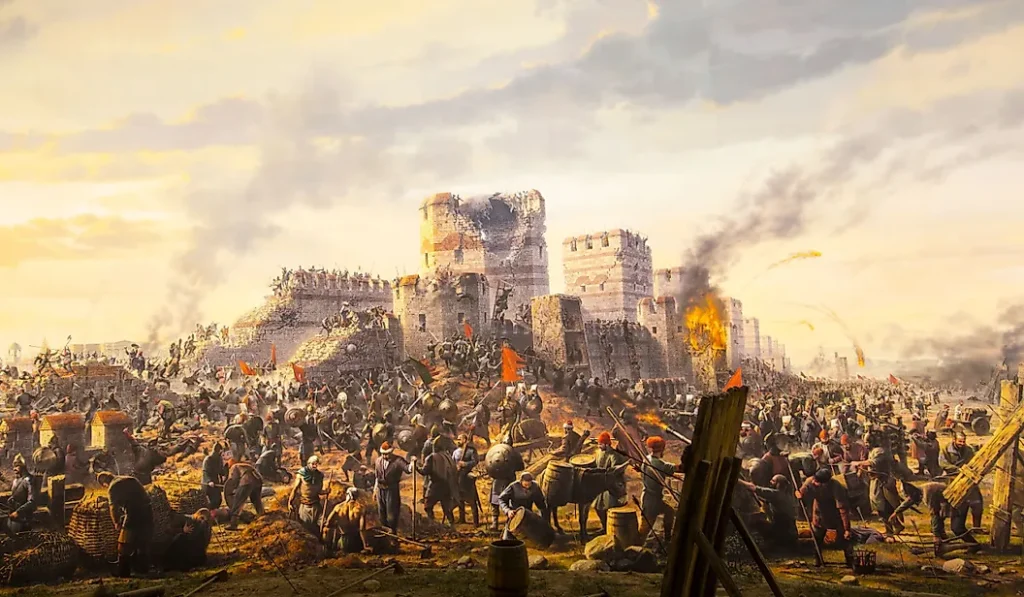
The middle eastern Christians, as nations, were not and will not be redeemed. A primary fear of Pseudo-Methodius, that of Christians apostatizing, is what ended up happening. In order to avoid the poll tax, persecution and to secure advancement in society, most Levantine and North-African Christians long ago converted to Islam and rejected the salvation of Christ.
The unclean nations of the north were never released, unless you want to be infinitely elastic and consider them the Mongols, which would fall out of the predicted time frame. Nevertheless, this is exactly what the Russian monastics did to explain the Mongol onslaught six centuries too late.
The Roman king did not go to Jerusalem, unless you want to stretch it and consider the Crusaders a proxy extension of him. He definitely did not and will not save the world. He long ago ceased to exist, at the hands of none other than the Muslims he was supposed to have subdued, unless of course you want to see him in the face of the czars, who are gone, or Putin who is not a king. Or Trump… The concept of the Last Roman Emperor evolved into the concept of the Last Christian King, which kept the spirits up for centuries, but this is an evolution of the initial concept, it is not what the Apocalypse, and neither the bible, predicted.
The Greek Orthodox church claims to be that Rome left standing, but the Rome, the Roman king, predicted by Pseudo-Methodius, were clearly a political entity enforcing Christendom on earth. The ecumenical patriarchate has been for centuries a prisoner institution of an infidel state.
The 7th millennium, according to the LXX, the bible of all Orthodox and the one used by Christ and the apostles, has long ago elapsed and The End of the physical world has not happened.
Despite the failure, it can be argued that the Apocalypse had a positive impact on Christendom. It inspired kings, nobles and the people to fight for Christ, resist the Muslim onslaught, “resist the Apocalypse.” The (eastern) Roman empire survived another eight centuries, for a time going into the offensive, regaining land, including temporarily the patriarchate of Antioch. It gave fuel to the Spanish reconquista. It inspired the crusaders to retake the Holy Land. As Constantinople weakened, it strengthened the German view of their Holy Roman Empire as the successor Roman kingdom. After Constantinople fell, it inspired the Russians to create the concept of the Third Rome, in which they viewed themselves as the new Christian kingdom destined to save the world from the Antichrist.
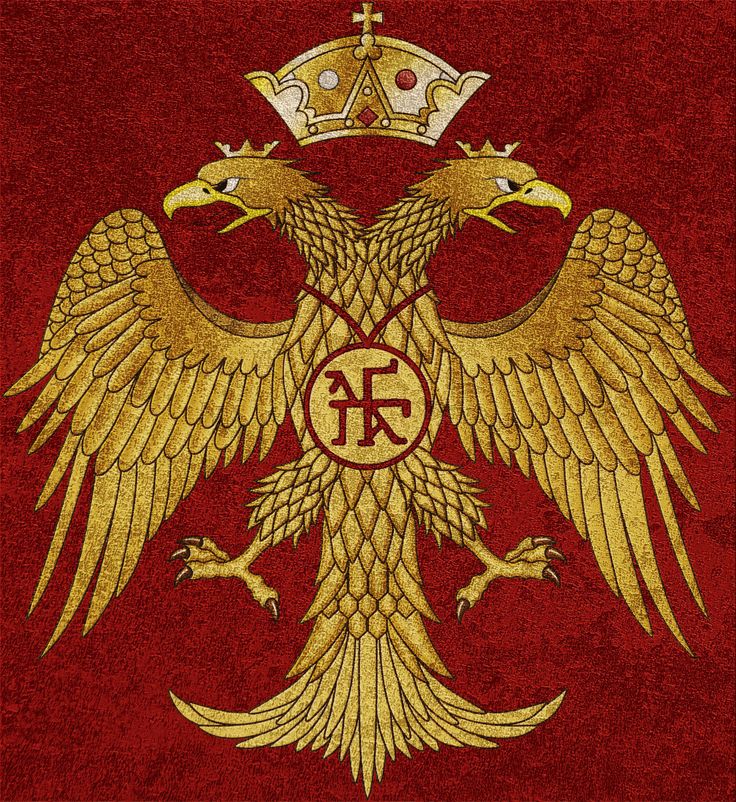
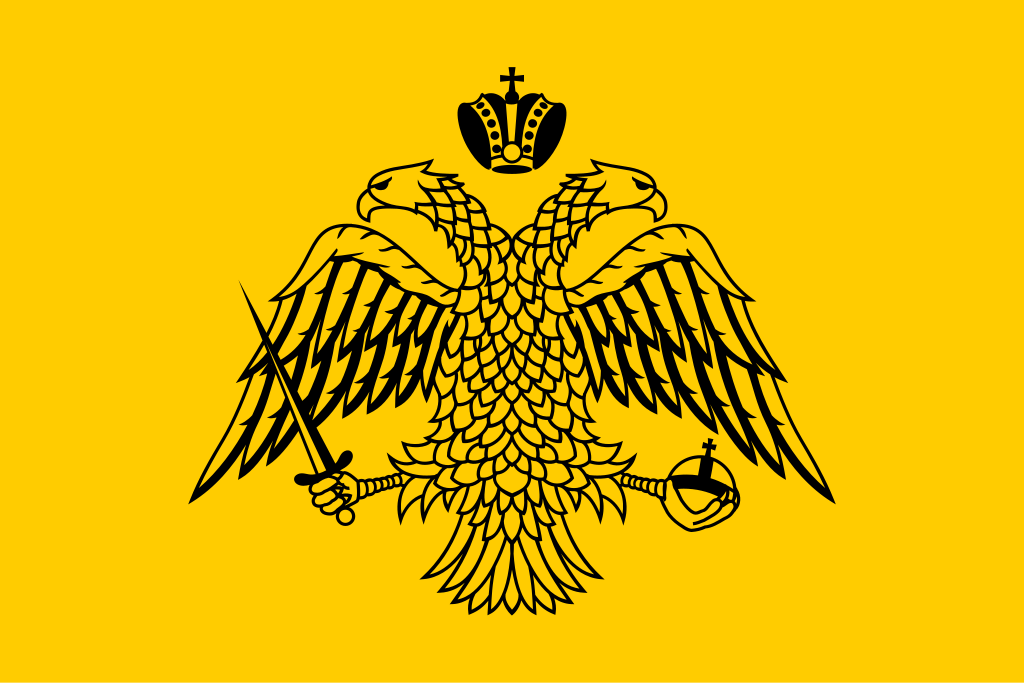
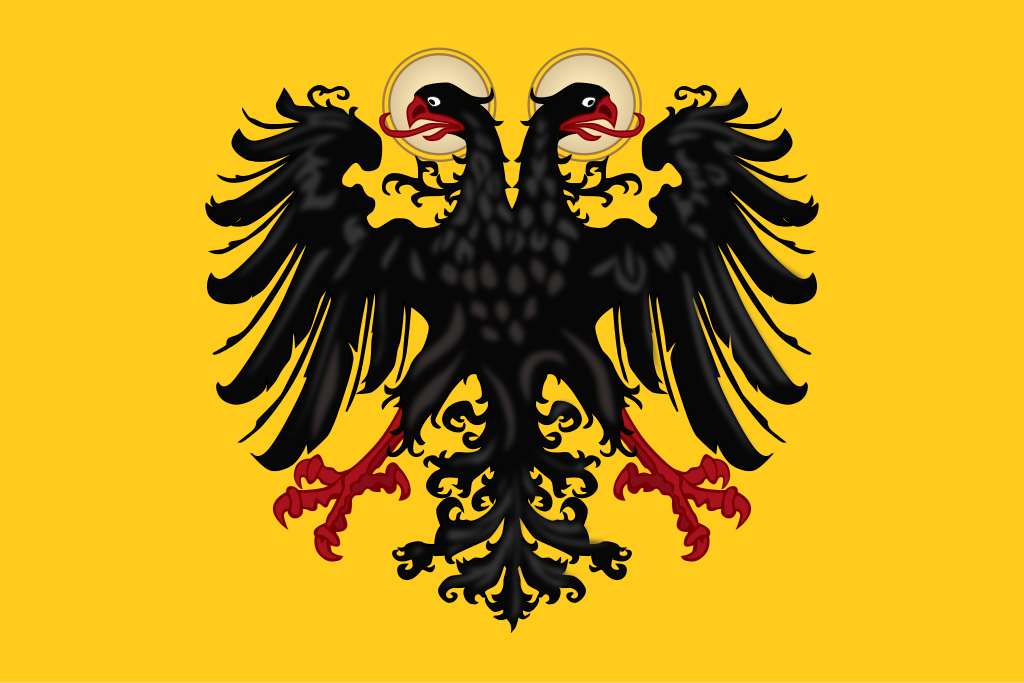
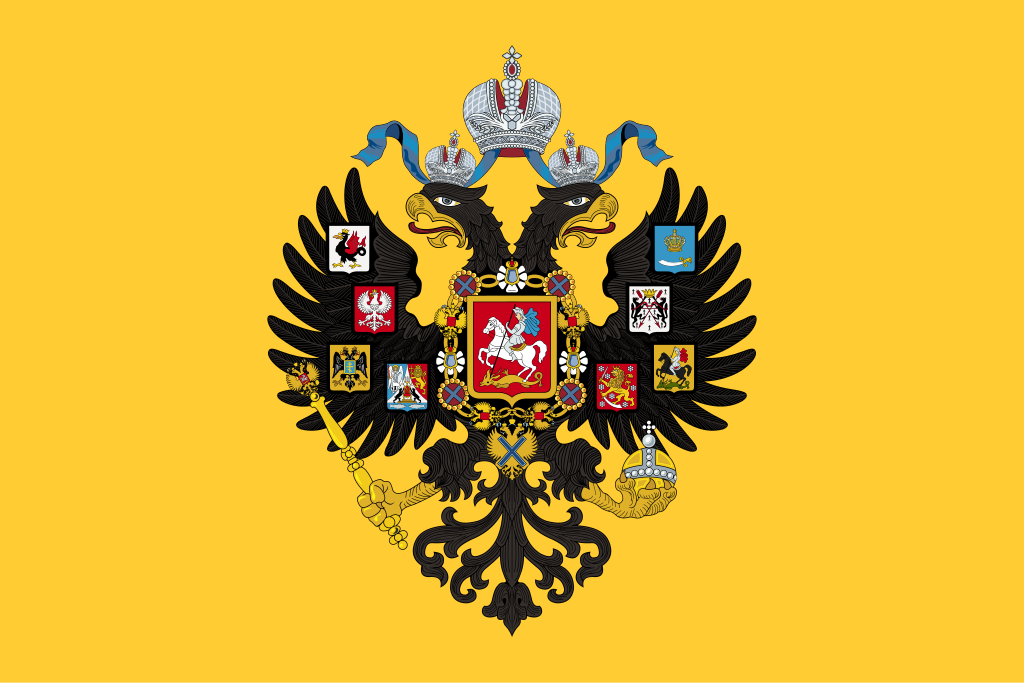
All of the latter positive, but still a net negative, because of the inevitability of The End of the World, which for many makes resistance futile. For example, it is a relatively accepted fact, in especially Russian historiography, that the last czar “knew” he will be the last, after which the apocalypse will come, because it was predicted to him by a monk, and because of this, his resistance to the “antichrists” at the end was relatively subdued.
It could have been and it can be much simpler and productive if we believed the words of Jesus and the Apostles, and considered The End of All Things past, and that there is nothing more in the future than what we carve for ourselves, doing it with God or against Him, after which we get our reward in the unseen realm, the glorious and luminous kingdom of heaven or the darkness of hell. Resisting our fleshly inclinations and the temptations of the opponent and its minions, is enough of a fight in itself. If we add to it resisting the “inevitable end,” the fight becomes an almost insurmountable burden to the spirit.
Bible prophecy generally uses imprecise words, but there is an exception, and that is the time statements of Jesus and apostles, that the End of All Things was to be soon, a the door, during the lifetime of the first generation. These statements are clear, precise and numerous, the most numerous of all predictions in the NT.
As Peter the monk said, Thanks be to God, for everything.


